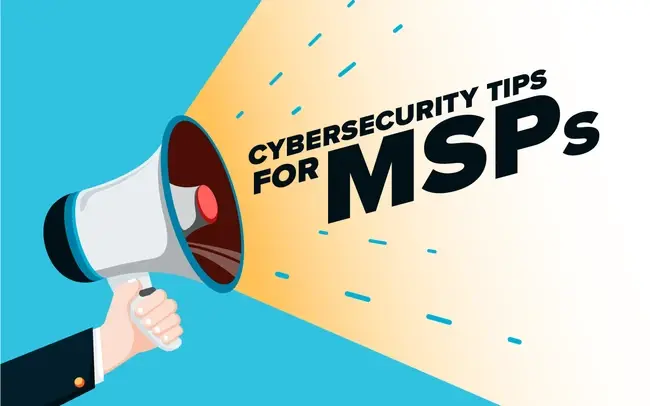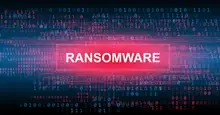
As a cornerstone of the modern IT ecosystem, managed service providers (MSPs) hold the keys to the kingdom in terms of data and access across industries.
Yet, with great power comes great responsibility—specifically, the responsibility of cybersecurity.
In this thought leadership piece, I will explore why cyber security is not just a necessity but a critical business strategy for MSPs and detail strategic actions that can elevate their security posture.
Understanding Cyber Threats
The landscape of cyber threats is as extensive as it is dangerous, especially for MSPs whose service foundations are built on trust and reliability. From ransomware attacks seizing client data to sophisticated phishing schemes that bait even the savviest users, the threats are real and evolving.
For instance, the Kaseya VSA ransomware incident vividly illustrated how a single vulnerability can have cascading effects across the multiple businesses that MSPs serve. Recognizing and preparing for these threats isn't just about protection—it's about ensuring business continuity in an increasingly interconnected world.
Best Practices for MSP Cyber Security
Internal Security Measures
How an MSP manages its own security is indicative of how seriously it takes its duty to protect client data. Robust internal practices such as regular employee security training, secure network architectures, and stringent access controls are fundamental. It is not merely about deploying technology but about cultivating a mindset where every employee understands their role in safeguarding the digital assets they manage.
Client-Facing Security Protocols
Security is a shared responsibility, particularly in the MSP-client relationship. Initiatives like thorough security assessments during client onboarding set the right tone for this partnership. Additionally, implementing multi-factor authentication and ensuring data encryption are not just technical requirements but trust-building measures. Effective incident response and disaster recovery plans further demonstrate an MSP’s commitment to client security.
Tools and Technologies for MSP Cyber Security
Security Monitoring and Threat Detection
Investment in state-of-the-art security monitoring tools like IDS, IPS, and SIEM solutions is crucial. These tools enable MSPs to detect and respond to anomalies swiftly, preventing potential breaches from escalating. Technologies such as Endpoint Detection and Response (EDR) are also essential for providing comprehensive visibility into endpoint threats, which are often the initial vectors for attacks.
Secure Remote Access Solutions
The shift towards remote work models has only heightened the need for secure remote access solutions. Technologies like VPNs and SASE are becoming staples in the MSP toolkit, ensuring secure and resilient connections. Enhanced remote desktop protocols with robust security features are vital to prevent unauthorized access and safeguard client environments remotely.
Compliance and Regulatory Considerations
For MSPs, compliance is not just about checking a box. It's a significant part of the trust equation with clients. Adhering to standards like GDPR and HIPAA is not only about legal compliance but also about demonstrating an MSP’s dedication to data integrity and security. This commitment must be woven into the fabric of the MSP’s operations and service delivery.
Data Backup Solutions
Data backup is a fundamental aspect of a comprehensive security plan, serving as a fail-safe against data loss incidents, whether they stem from cyberattacks, natural disasters, or human error. For MSPs, offering reliable data backup solutions is crucial for ensuring business continuity for their clients.
Integrating advanced data backup solutions, which offer automated backup workflows and instant recovery options, allows MSPs to reinforce client relationships through enhanced trust and reliability. By leveraging sophisticated tools that ensure data integrity and availability, MSPs can significantly mitigate the impact of data-related crises, ultimately supporting their clients' operational stability and long-term success. This approach emphasizes the importance of data security within cyber security practices and highlights the strategic role of MSPs in managing and protecting client data.
Future Trends in MSP Cyber Security
Emerging technologies and shifting cyber threat landscapes are poised to shape the future of MSP cyber security. To remain effective and competitive, MSPs must anticipate and prepare for these changes.
Firstly, the integration of artificial intelligence (AI) and machine learning in cybersecurity tools will continue to grow. These technologies can greatly enhance threat detection capabilities by analyzing patterns and predicting potential breaches before they occur. AI-driven security platforms will enable MSPs to offer more proactive and predictive security measures, moving beyond the traditional reactive approaches.
Blockchain technology also revolutionizes MSP security, particularly in identity and access management. With its decentralized and tamper-resistant ledger, blockchain can provide a more secure and transparent way to manage access to resources, reducing the risk of insider threats and credential compromises.
Another significant trend is the increasing importance of security for Internet of Things (IoT) devices. As businesses continue to adopt IoT technology, MSPs will need to expand their services to include robust IoT security solutions, addressing unique vulnerabilities and ensuring comprehensive network security.
Moreover, the rise of regulations and compliance requirements will drive MSPs to adopt stricter security protocols. This will necessitate a deeper integration of compliance as a service (CaaS) within MSP offerings to help clients navigate the complex landscape of industry-specific regulations efficiently.
Lastly, the concept of Zero Trust security models is gaining traction and will likely become a standard practice within MSP offerings. This model operates under the premise that no entity inside or outside the network is trusted by default, significantly enhancing overall security posture by continuously validating every stage of digital interaction.
These advancements will not only reshape the tools and strategies MSPs use but also redefine their role as leaders in the technological safeguarding of business assets. As MSPs adapt to these trends, they will be better equipped to handle the evolving threats and challenges, ensuring robust security frameworks for their clients and themselves.
Conclusion
The importance of cyber security in the MSP sector cannot be overstated. As MSPs navigate the complexities of IT management, embracing sophisticated cyber security measures is essential.
This not only protects their clients but also solidifies their reputation as trusted, forward-thinking leaders in technology services. In essence, robust cyber security is not merely a function of the MSP—it is its backbone.









